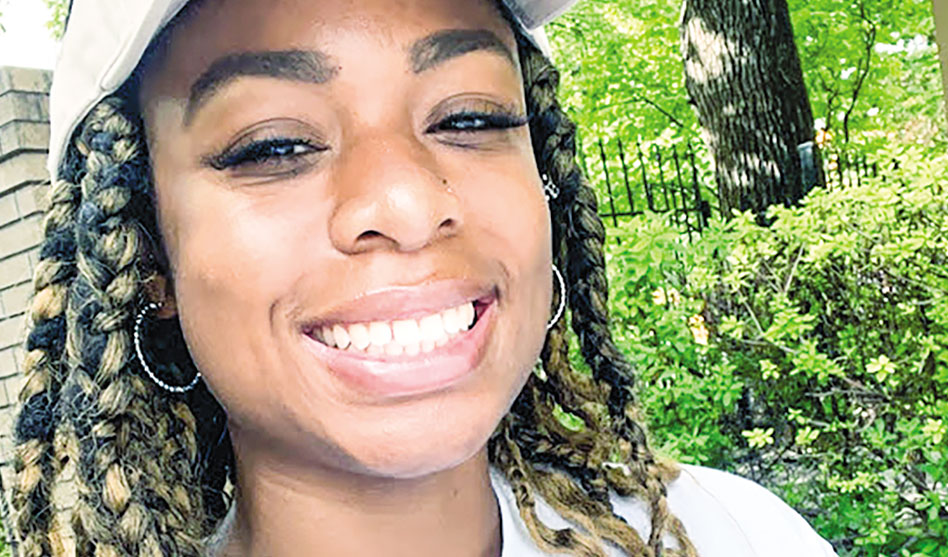Sidney Yerger
Dallas Hope Charities partners to present workshop to help others help victims
DAVID TAFFET | Senior Staff Writer
Taffet@DallasVoice.com
Sidney Yerger, outreach and education engagement manager at Dallas Hope Charities, helps stage the Safe Place Workshop quarterly with the Dallas Police Department. The program aims to foster a safer environment for LGBTQ individuals who may be experiencing domestic violence. Representatives of The Family Place also participate and give pointers on how to support a victim.
A virtual meeting on Google Meet is designed for community members to learn how they can support LGBTQ survivors of domestic violence. Business owners, supervisors, non-profit organizations and librarians may benefit from pointers the presenters will offer.
Yerger said most people think of physical abuse when they think of domestic violence. But abuse comes in different forms, including verbal and financial abuse.
A Safe Place can offer to call 911 for someone who is experiencing domestic violence; however, should the victim decline to speak to police, A Safe Place can make a record of the complaint so that police will have the information in case of a later assault or incident, Yerger suggests.
She added that even if the individual experiencing violence chooses not to file a complaint with police, A Safe Place or someone else trying to help them can offer information on resources such as The Family Place (TheFamilyPlace.org).
But she said to offer information and resources such as The Family Place and its website TheFamilyPlace.org.
Yerger suggested a simple approach to help someone in the midst of a domestic violence incident. “Hey, are you OK?” may be enough to begin a conversation, she said.
Often a power dynamic is at play in a domestic violence situation, she said, “especially if children are involved.” And even if they go to the police or a shelter, the victim often returns to the abuser.
The Family Place, in its research, found that the average victim of abuse returns to the abuser seven times before permanently leaving.
“Be mindful, domestic violence does happen in LGBT relationships,” Yerger said.
Verbal abuse is common, she said, especially using slurs in a degrading manner. She said signs to watch for among friends include using personal experiences that may be degrading or embarrassing. That is a common sign that something is wrong.
But bruises, Yerger said, “is a tell-tale sign for me to start asking questions.”
Ask about the dynamic in the relationship, Yerger suggested, offering several questions anyone can use when they suspect a domestic violence situation: Are you being physically harmed? Are you able to be financially independent without your partner? Do you feel safe going home with that person?
For help, contact The Family Place, which understands that a victim of domestic violence can be any gender and any sexual orientation.
Many people hesitate to call the police over these situations because of the terrible outcomes that have been reported across the country. The Dallas Police Department has changed the way it answers domestic violence calls and has seen good results thanks to those changes. A member of the new Right Care Team, with training in mental health care, is the lead officer on a call and is better equipped to diffuse a violent or potentially incendiary scene.
In addition, Yerger said, Dallas Hope Charities through its Safe Place Program, does allyship training with recruits.
“The intent, at least in Dallas, is to do better by the community,” she said.
If you are looking for a Safe Space location, Yerger suggested going to any Dallas library and asking if they’re part of the Safe Space program. Ask, “Would someone be able to help me?” and everyone working in the library should be able to offer resources.
To those participating in the training, Yerger stresses that no one is asking you to be a hero. If someone comes by asking for help, just call 911.
“Looking from the outside, it’s easy to observe and judge,” she said. But domestic violence situations are complicated.
“Put the onus on the abuser.”
And be careful: The most dangerous time in any abusive relationship comes when the abused person leaves that domestic violence situation, Yerger warns. n
To register for the online workshop, visit DallasHopeCharities.org and find registration form under Safe Place link.

